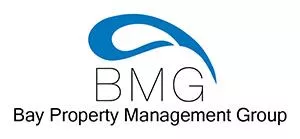Tenant Guide to Rental Security Deposits and Deductions
Understanding and enforcing rental security deposits is important for landlords and tenants. After all, if you’re a first-time renter and don’t know what a security deposit is, you may not understand why they’re necessary. Some tenants assume they’ll get their full deposit back automatically after moving out of a rental. However, whether you get the full deposit back or not depends on several factors. Let’s go over the basics of rental security deposits and how you can get your security deposit back when you move.
Why Do You Have to Pay Rental Security Deposits?
A security deposit is a set amount of money that a tenant pays a landlord or property manager before moving into a rental property. The landlord or property manager holds the deposit throughout the entire tenancy. Then, at the end of the lease term, it’s either returned to the tenant or withheld for unpaid bills or property damages.
Rental security deposits are crucial for several reasons. First, before you sign a rental agreement, it’s vital to thoroughly read the document to learn the terms and how much your rental security deposit will cost. In your lease agreement, you’ll find your landlord’s expectations for property maintenance and other essential details.
If you fail to adhere to your landlord’s expectations, they will withhold your security deposit. Next, we’ll go over why you’re not always entitled to your security deposit after you move.
Are You Entitled to Your Full Deposit When You Move?
Whether you get your security deposit back or not depends on how well you take care of the rental property. Some tenants expect to get their full deposit back after moving out. However, you’re not always entitled to it. Generally, if you took excellent care of the property and paid your bills on time, you’ll get your deposit back.
However, if you caused property damages, left unpaid bills, or left your lease early, you may only receive part of your deposit. Or even worse, none of it at all. That said, every state is a little different, and landlord-tenant laws vary depending on your location.
Next, let’s go over a few reasons why you might not see your full security deposit once you leave your rental.
Common Reasons for Security Deposit Deductions
Rental security deposits are put in place to protect landlords and their property. So if something detrimental happens to the property while you’re living there, it’s a bit of security for property owners to fix any damages without paying out of pocket.
That said, if something does happen, landlords have the right to deduct some or all of your rental security deposit. Here are some of the most common reasons you won’t get your deposit back.
- Nonpayment of Rent
- Breaking Your Lease Early
- Unpaid Utility Bills
- Significant Cleaning Costs
- Major Property Damages
Nonpayment of Rent
Even if you’re moving out, you’ll want to pay your rent on time and in full each month. Your security deposit doesn’t cover your last month’s rent, so you still have to pay for the last month of your tenancy. If you pay all of your bills each month, you’ll have the opportunity to get some or all of your deposit back. However, it depends on how well you cared for and maintained the property.
Breaking Your Lease Early
If you break your lease agreement early, your landlord may withhold your entire deposit to pay for unexpected vacancy costs. That said, the laws and regulations differ by state, so checking your lease agreement is crucial. You might not get any of your deposit back if you’re penalized for breaking the lease early.
Unpaid Utility Bills
Depending on the terms of your lease agreement, either you or your landlord pays the utilities. You could be penalized for paying late or missing payments if you’re responsible for paying them. That said, if you neglect to pay your bills, your landlord may withhold some or all of your security deposit. Make sure you read the lease agreement to determine whether it’s your responsibility to pay for utilities or your landlord’s.
Significant Cleaning Costs
No matter what, your landlord should hire a professional cleaning service to clean up the property after each tenant. However, if they have to put in extra work or expenses to clean up after you, expect to have some of your security deposit withheld. For instance, if you leave garbage or any unwanted items in the rental after you move or significant pet damages, you may not see any of your security deposit back.
Major Property Damages
If you leave significant damages to the property when you move, you can expect to have some or all of your deposit withheld. In fact, property damages are one of the main reasons tenants don’t receive their full deposit back after they move out. That said, it’s important to differentiate between property damages and normal wear and tear. Here’s a short list to show the main differences.
Normal Wear and Tear
- Small scratches on countertops
- Loose door handles or kitchen cabinet knobs
- Small holes in the walls from hanging pictures or art
- Dirty grout in the bathroom or shower walls and floor
- Small scratches on hardwood floors or minor stains on carpets
Tenant Damages
- Broken light fixtures, windows, or doors
- Large stains or tears on the carpet
- Cracked countertops or broken cabinet doors
- Large holes in the walls or chipping paint
- Excessive scratches or staining on hardwood flooring
Best Ways to Get Rental Security Deposits Back
Most tenants want to get their rental security deposit back. After all, you paid the money and have the chance to get it back. So, why not do everything you can to get it all back? Here are some ways to ensure you get all or at least some of your security deposit.
- Give Adequate Move-Out Notice
- Take Care of the Property
- Clean Thoroughly Before You Move
Give Adequate Move-Out Notice
Moving out of your rental property without giving adequate notice can cause you to not get your deposit back. Most lease agreements state that you need to give at least 30 days’ notice before you plan to move out. Depending on your landlord and local laws, you may even need a 90-day notice.
So, if you’re planning on moving out of your current rental property, give your landlord proper notice. Once you notify your landlord, they can help you proceed with the move-out process. Generally, you’ll need a move-out checklist and inspection to note any damages. Once the property’s been inspected, they’ll determine any security deposit deductions.
Take Care of the Property
The easiest way to ensure you get your deposit back is to take care of the rental property. After all, it’s not your property, so taking extra care of it while you live there is important. Before you move into the property, look over the lease agreement to see what you can and can’t do within the rental. For instance, most rentals don’t allow you to paint inside, and some may have rules about what you can do to decorate or customize the property.
Additionally, ensure you keep up with all necessary repairs and maintenance within the property. If you neglect damages or maintenance concerns for too long, they can become more costly to fix, costing you your entire security deposit.
Clean Thoroughly Before You Move
Before you take your final steps out of your rental property, ensure it’s cleaned to the best of your ability. Leaving your rental dirty or cluttered is a surefire way to have some or all of your deposit withheld. Taking all of your items out of the property isn’t enough. It’s crucial to thoroughly clean the unit, taking the time to vacuum, mop, clean the bathroom and kitchen, and clean any marks off the walls.
Landlord-Tenant Law for Security Deposits
Although it varies state by state, it’s generally required that your landlord provides you with an itemized list of deductions if they withhold any part of your security deposit. However, if they fail to provide this information, you may be entitled to the full deposits, regardless of any damages left behind in the unit.
Furthermore, rental security deposit amounts vary state by state. Generally, landlords cannot charge more than two months’ rent for a security deposit. That said, your landlord may raise your security deposit under certain conditions, like if the rent goes up at the property.
Make sure you check your state and local laws to learn more about landlord-tenant security deposit laws. Or, ask your local Fairfax property managers if you have any questions throughout the rental process.
Get Help From Your Fairfax Property Managers
Owning and managing rental properties can create a lot of stress for property owners. Setting rates for rental security deposits, monthly rent amounts, and accounting for property damages can be a ton of work–especially if you own several rentals. That said, if you struggle to keep up with the daily tasks of owning rental properties, it’s time to reach out to your local property management team.
Bay Property Management Group is qualified and ready to help manage your rental properties. We offer comprehensive management services, from tenant screening to inspections, rent collection, maintenance, and more! Contact BMG today if you need rental management services in Fairfax, Washington DC, Philadelphia, or Baltimore.



